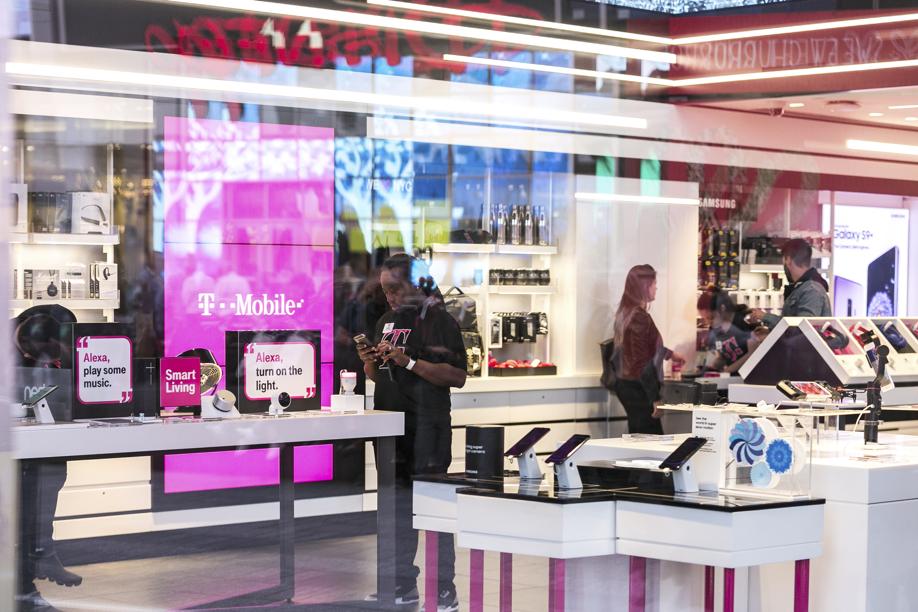

Enough with the sequels.
I didn’t like it the first showing, and remain opposed as ever to “The Deal That Wouldn’t Die,’’ otherwise known as the resurrected plan to merge the nation’s third- and fourth-largest cellphone companies, T-Mobile US Inc. and Sprint Corp.
We went through this last fall, when the two companies came very close to tying up. Then, as now, the deal makes lots of sense for Sprint, which has about 41 million subscribers, and T-Mobile, with 59 million. Everyone has a cellphone, so the two companies are about as big as they’re ever going to get. A combined T-Mobile-Sprint will have about as many customers as the top two companies, AT&T Inc. and Verizon Communications Inc.
But the deal would leave the United States with just three nationwide wireless carriers, rather than four. That will almost certainly mean higher prices and fewer innovative services. Back in 2011, when the US Justice Department refused to allow AT&T to buy T-Mobile, the result was a delightful surge of competition, as a desperate T-Mobile began upgrading its wireless network, cutting prices, and devising smart promotional gimmicks that other networks were forced to match. By vowing to merge, Sprint and T-Mobile are betting that the Justice Department will walk back one of its most effective decisions in years.
So why mess with success? Sprint and T-Mobile say that by hooking up, they can ensure a more competitive market five or 10 years from now, as 5G wireless networks begin rolling out.
With 5G, wireless data networks can deliver the kind of speed now confined to wired or fiber services like those of Comcast Corp. or Verizon. I have one-gigabit Internet running over a wire into my home, but my 4G cellular service can’t come close to that speed. With 5G, it will.
President Trump has elevated 5G to a matter of national security. In March the administration blocked Broadcom Inc. from acquiring Qualcomm Inc., the nation’s leading developer of 5G tech. The fear? That Broadcom would slash research and development spending at Qualcomm, which would allow Chinese companies to dominate in 5G.
So Sprint and T-Mobile are pitching their combination as a guarantee of American 5G leadership. As separate companies, each may lack the deep pockets needed to fund the 5G transition. An analyst at Ovum Ltd. estimated last year that it would cost T-Mobile $25 billion to upgrade its network; I’m guessing the cost to Sprint will be similar. That’s a massive layout for any company. But it’s a heavy burden for Sprint and T-Mobile, as each will have to spread the costs over a smaller customer base. Combined, they could roll out 5G on an equal footing with Verizon and AT&T. That would mean three strong nationwide 5G networks instead of two strong ones and a couple of second-rate offerings.
Anyway, that’s the argument, and it has some merit. But 5G won’t be widely available for years. In the meantime, what happens to healthy competition in our wireless market right now? You might suppose three rivals would keep the competitive fires burning. But it didn’t work that way when General Motors, Ford, and Chrysler dominated the US auto business. Instead, the industry settled into decades of comfy mediocrity, interrupted only when ferocious competition from Japan ravaged the lot of them. But who needs Toyota? America already has an independent and aggressive T-Mobile to keep the rest of the industry honest.
The bigger worry is Sprint, now the weakest of the wireless carriers. What will become of it if the Justice Department says no? One thing’s for sure: It won’t just disappear. Even in its feeble condition, Sprint has a vast national infrastructure and a big library of underused wireless frequencies licensed from the Federal Communications Commission. Somewhere in there, you’ll find the makings of a strong wireless competitor, should Sprint be acquired by a well-funded suitor. Last year, the company talked about it with Comcast and another cable company, Charter Communications. The idea, which came to nothing, was that Comcast and Charter would each own half of Sprint, instantly turning the cable guys into major wireless providers.
Instead, Comcast is selling wireless service in partnership with Verizon, and Charter is set to do the same later this year. But there’s nothing to prevent either or both cable companies from taking a second look at Sprint. And there are other possible acquirers. The parent company of Google — Alphabet Inc. — comes to mind. Alphabet is working on wireless projects of its own, with an emphasis on 5G.
Any of these alternative deals is better for consumers, because we would end up with four wireless networks, rather than three. Besides, the on-again-off-again romance between T-Mobile and Sprint is starting to remind me of “Justice League.’’ It sounded good on paper, but most of us weren’t interested.
Hiawatha Bray can be reached at hiawatha.bray@globe.com. Follow him on Twitter @GlobeTechLab.



